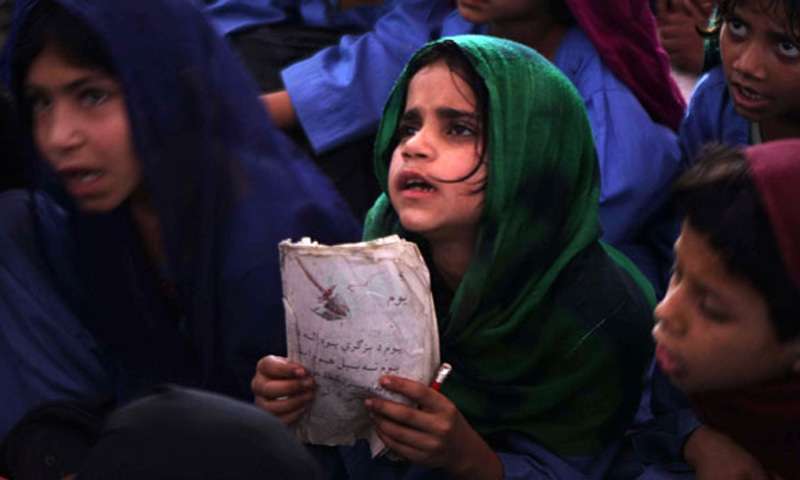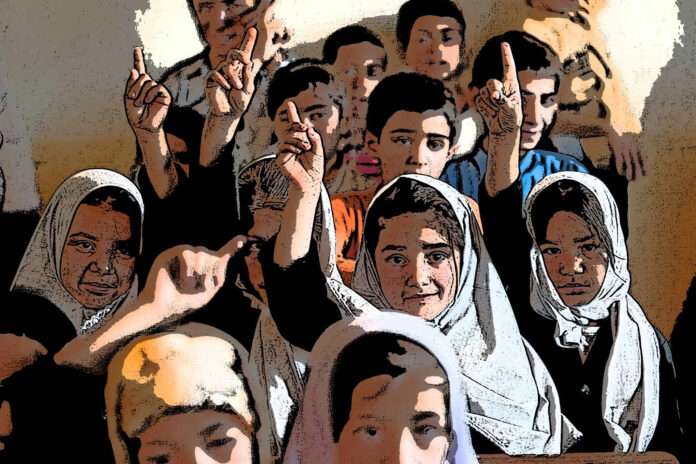A developing country, Pakistan, faces many challenges that interfere with the current school and education system. Poverty, unemployment, terrorism, and illiteracy are all major factors that contribute to the lack of education for children in the country. For a developing country, future generations need these basic skill sets in order for Pakistan to thrive and prosper in the future. Even though the government has attempted several changes to help with the reform, there has always been a financial barrier. The government has also prioritized and allocated their money elsewhere for other things that they consider a greater priority than child education. Even though by 2030 Pakistan is expected to have an 100% literacy rate, the percentage increases at a very slow rate. In 2020, and 2021, the literacy rate was reported to be about 62.8% which may not be accurate. This was only a 0.4% increase compared to the reported percentage in 2018-19. Pakistan also suffers from a great percentage of dropouts as well. Children lack the motivation to learn and receive an education, and end up deciding that starting work from an early age would be more beneficial to both themselves and their family because they are not exposed to environments with well-trained teachers. As a result, most children do not even make it past primary education. The percentage of literacy rates for boys is much higher than girls. Covid-19 has also taken a toll on the education system and contributed greatly to the percentage of children out of school.
As mentioned before, politicians often prioritize other issues and challenges before categorizing the education system as something in great need of attention. The Pakistani government now needs to highlight the problem of the education system as an emergency. The future of Pakistan is in the control of the younger generations, politicians need to realize that their positions in the government will ultimately be passed down to the younger generation. In order for Pakistan to develop completely, positions of government need to be filled by people who are capable and educated with a wider range of backgrounds. If education is only provided for the elite class of the country, then the same mistakes will be made over and over again without any progress and development. Educating children from a young age will not only raise the chances of Pakistan’s improvement, it will also create a better group of people who will have developed cognitive, emotional, physical, mental, and social skills to make adequate decisions for the country.
Children will also be able to use the skills that they learn in school and bring those tools home to share with their parents. Educated children might be the solution to all the problems that Pakistan faces. The government needs to invest time and money into increasing the number of school institutions, and their ancillary support infrastructure with safer transport systems and facilities. If conditions of school areas and transport improve, it will also give parents the incentive and comfortability of sending their children to school and reduce the rate of dropouts. Even though education is an institution that does exist, the quality of education must be discussed even further. Education is important for the amelioration of society.
The government needs to begin universalizing and improving primary education for both young boys and girls.
Children deserve to have a basic skill set before being thrown into work and labor. The development that children receive in primary school will also create lifelong opportunities in the global market as well. The failure of the education system has also led to a shortage of well-trained teachers. Projects such as Early Learning Partnership (ELP) provides professional development for school teachers funded by the World Bank.
The issue of ghost teachers can be resolved by creating community based school institution where members of children’s families can engage in the management. As Pakistan is a multilingual and multi-ethnic country, children often face difficulty with their learning abilities as teachers pass on information that is not in their native language. Scholars argue that before they are taught Urdu and English, they must be taught in the language that they speak at home in order to create an atmosphere of comfort for the child.

As English is either a secondary or tertiary language for a lot of children, according to Agha Khan University’s Institute for Education Development (IED), more than 90% of students only had very minimal or basic understandings and knowledge of science and mathematics, and ended up retaining only a partial amount of the information that they should have learned. Scholars have also discovered that instead of training students to learn multiple languages all at once, studies show that children studying in monolingual classrooms have a better performance than children who do not learn in that same environment.
There are also issues with the content of textbooks and storybooks that teachers use to guide their lessons. Many of their lessons offer very limited roles for girls and women, which encourages many young girls to believe that they have no profound or important place in society. Teachers must be also trained to not show any favoritism or attention based on gender. Gender inclusion is a concept that many teachers have to be taught for a better conductive and open learning environment.
Quality education leads to better healthcare. It leads to more accurate knowledge about health, which results in better lifestyle decisions as well. It allows parents to make better decisions for their children. People with more education are more aware of certain health risks as well, and are able to be conscious about not only their own well-being, but also their communities.
Overall, the education system in Pakistan, starting from primary level education, needs to be completely transformed and developed. Improvements in the quality of teachers, classrooms, textbooks, gender equality, monolingual learning, all need to be required in order for the stability of the country. Students need to be made aware of the importance of having an education and the problems in the country that they face so that when they grow up, they can help their nation grow. Primary education must be developed completely, and children need to be taught at the same level as other children internationally. The younger generation is the future of Pakistan, so without a group of well-educated and well-informed children, there will be no progress.





